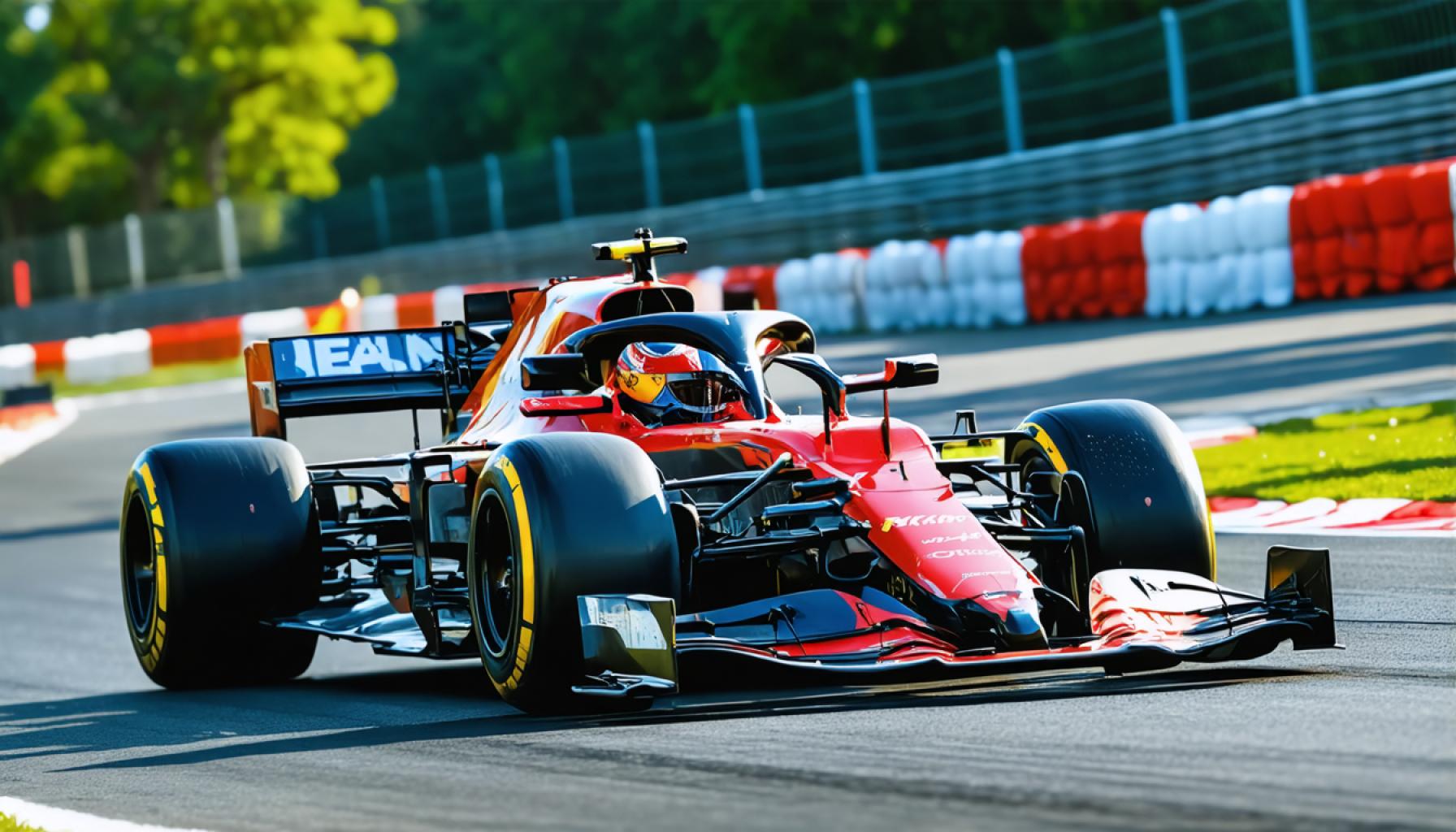- Artificial intelligence is transforming Formula 1 by analyzing vast datasets to unearth critical race insights.
- AI optimizes car design and aerodynamics, enhancing stability and performance on the track.
- While AI provides data-driven strategies, the human element—drivers’ skills and creativity—remains essential to the sport’s appeal.
- Fans enjoy a digital-enhanced experience, with AI delivering real-time race insights and predictions.
- AI elevates the excitement of Formula 1, amplifying innovation while preserving the human spirit’s role as the core of the sport.
The world of Formula 1, long defined by the electrifying hum of engines and the visceral thrill of speed, now finds itself at the mercy of a silent, yet profound revolution. This wave of change is propelled by artificial intelligence, and its impact on the sport is both sweeping and inescapable.
Gone are the days when teams relied solely on a cadre of experts hunched over computers, interpreting endless streams of data. AI now sifts through vast datasets, unearthing patterns and insights that transform milliseconds into decisive elements. Imagine a scene where, in the midst of a high-stakes race, AI whispers calculated suggestions to pit crews: an unforeseen pit stop here, a swift tire change there, ensuring drivers edge out fractions of a second to claim victory.
Inside the minds of F1 cars, AI crafts them with the precision of a master sculptor, optimizing aerodynamics using machine learning techniques that once existed only in science fiction. Cars zip around circuits with enhanced stability, their every curve and swoop designed by algorithms that understand physics in ways humans are only beginning to grasp.
Yet, the heart of Formula 1 beats strongest in its people. Drivers remain the artists who translate crystal-clear data into thrilling overtakes and deft maneuvers. AI may suggest the perfect line, but it’s the human touch that ignites passion on the track.
For fans, the experience is a digital wonderland. AI elevates the F1 spectacle, serving real-time insights and race predictions that bring viewers into the driver’s seat, virtually handing them the controls. Whether it’s through augmented reality views or personalized content, fans now digest the sport like never before.
The takeaway is clear: AI is not just innovating Formula 1; it is amplifying its magic, ensuring that, as the checkered flag waves, the human spirit remains the ultimate victor.
Unlocking Formula 1’s Winning Edge: How AI is Transforming the Race
How AI Revolutionizes Formula 1: Key Areas
How-To Steps & Life Hacks
1. Data Integration: Formula 1 teams use AI algorithms to integrate data from various sources like telemetry, weather conditions, and tire temperatures. This helps in making real-time decisions that impact race outcomes.
2. Predictive Maintenance: AI helps teams anticipate car part failures before they occur by analyzing historical data and detecting anomalies in telemetry signals.
3. Fan Engagement: AI-driven platforms can create personalized viewing experiences. For instance, fans can get real-time stats on their favorite drivers, while predictive analytics can give insights into race progress and probable outcomes.
Real-World Use Cases
– Mercedes-AMG Petronas F1 Team: This team leverages AI to enhance race strategy and has partnered with tech giants like IBM for their AI technology capabilities.
– McLaren’s Simulation Software: Using machine learning, McLaren optimizes car setup and pit-stop strategies for different tracks and weather conditions.
Market Forecasts & Industry Trends
The AI market in sports is expected to grow significantly. According to a report by MarketsandMarkets, AI in the sports sector is anticipated to reach $3.3 billion by 2025, driven by increased adoption in motor racing for strategy optimization and fan engagement.
Reviews & Comparisons
– AI Integration vs. Human Expertise: While AI enhances car performance and strategic planning, it is compared to traditional methods; the consensus is that AI complements rather than replaces human expertise. For instance, drivers use AI to refine their strategies but rely on skill and intuition to execute them.
Controversies & Limitations
– Automation Concerns: Critics argue that over-reliancing on AI might undermine human skill, potentially leading to a lesser emphasis on the driver’s abilities.
– Ethical Dilemmas: The use of AI in F1 raises questions about fairness, as teams with more resources can afford more advanced technology, creating uneven playing fields.
Features, Specs & Pricing
– AI Software in F1: Companies like AWS provide cloud-based solutions that offer real-time data processing and predictive insights crucial for decision-making in races. Pricing for such services can vary significantly based on usage and customization needs.
Security & Sustainability
– Data Security: Protection of vast amounts of data is paramount, with teams employing advanced cybersecurity measures to protect their strategies from competitors.
– Environmental Impact: AI can enhance fuel efficiency through better aerodynamics and optimal race strategies, thus reducing the carbon footprint of races.
Insights & Predictions
– Future of AI in F1: We may see further integration of AI in driver training, with simulations closely mirroring real-world scenarios to improve driver reaction times and decision-making under pressure.
Pros & Cons Overview
Pros:
– Enhanced performance analytics
– Real-time strategy optimization
– Greater fan engagement
Cons:
– Potential reduction in driver skill emphasis
– High costs for achieving competitive parity
Actionable Recommendations
– Teams should continually invest in AI to stay competitive, focusing not just on data analytics but also on enhancing fan experiences.
– Aspiring Engineers: Those interested in motorsport should focus on AI and machine learning skills, as these are increasingly critical in F1 team operations.
– Fans: Engage with AI-driven platforms to gain deeper insights and a more interactive experience of the sport.
Quick Tips
– For Engineers: Learn Python or R, which are extensively used in AI and data analysis.
– For Fans: Use AI-enhanced apps that offer live race data and customized insights to enhance your viewing experience.
For further exploration into how AI is revolutionizing various fields, visit IBM and AWS for in-depth resources.
